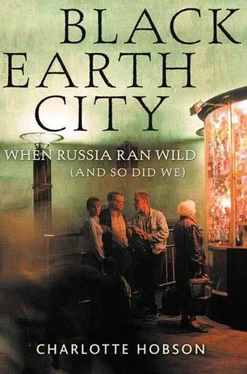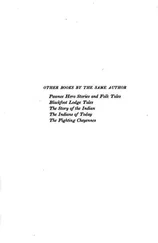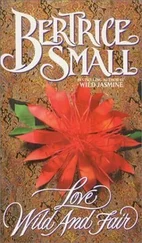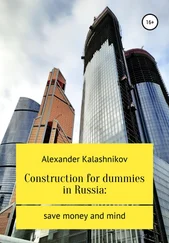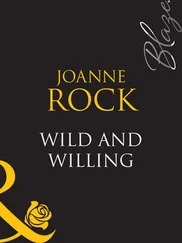“Now who’s going to pour me some vodka, lads,” she cried, swaying a little.
We spooned red caviar straight from the can, then cooked shashlik on skewers and ate it with flat Georgian bread. After we’d finished, Lyuba danced a Caucasian dance of her own invention, sat down suddenly, and said, “Hey, Igor! We’re going to have fun, aren’t we?”
“As much as you want, Lyubochka.”
She leaned across and kissed him. His arms hanging by his side, nonchalantly he kissed her back.
“To the moon!” shouted Lyuba, raising her glass. “To life! To oblivion!”
“To the woods,” said Igor, taking Lyuba’s hand.
The steam bath was ready. Seryozha was shaken awake. All of us hurried, stripped naked in the damp, pine-smelling outer room, and entered the banya itself, blinded by steam. It was a little wood-lined chamber with slatted shelves at various heights; a stove, its iron cover heated until it glowed, stood in the corner. Water was flung on and the stove let out a sharp hiss; scalded drops ran about the metal and disappeared. The room vanished. Everyone was silent, taking short breaths of the pine-smelling steam. Sweat prickled through skin. When we could bear it no longer, we plunged, shouting, through the mist to the river.
The following week I visited Lyuba and her father. At home Lyuba was neat and businesslike, whisking the books and papers she had been working on into a drawer and preparing tea. Her father, a kindly, unassuming man in a beige cardigan, beamed and asked about England, my family and so on. After a while, Lyuba interrupted.
“She’s come to hear about the Memorial Wood.”
“Ah yes.” For the first time since my arrival, Lyuba’s father stopped smiling. He went over to the desk and took various files from the drawers, pausing for a moment and gazing blankly out of the window. Then he wiped his kind, plump face and began.
“In this wood that you walked through, we have uncovered around seven hundred corpses from pits beneath the pine trees. Most of them were shot between January and March 1938 with high-caliber bullets to the back of the head, using Nagan revolvers, standard issue to NKVD officers. They would have been transported there from various camps in the region: Boguchar, Ostrogorsk, Sosnovka, Borisoglebsk, Novokhopirsk.”
“Bobrov,” added Lyuba, pouring tea.
“Bobrov, too. Taken in trucks to the edge of the wood and then marched to their graves. We don’t know if the NKVD prepared the graves beforehand or if the victims dug them themselves. Here is something we found—” He passed me a scrap of cardboard, stained and bent. It was a student identity card, the photograph faded almost to extinction; I could just make out a round, serious face, cropped hair. “A boy, only nineteen… There were men and women of all ages, but most were less than forty years old. We have only identified a few.”
“Here,” Lyuba added, picking out another picture. “A post office worker, accused of conducting anti-Soviet conversations with Christ. He was charged with crimes of the tongue.”
“Beniamino Ferroni.” Her father held up a photo of a dark-haired man in a suit. “He was an Italian who ran the Voronezh circus. Shot for espionage. Please, look for yourself.”
I sifted through the papers. Among them were photographs of the objects that had been found in the pits: silver crosses, wedding rings, handcuffs. A few faded, gray-eyed faces looked out at me, expressionless, and I had a swift vision of them marching toward their graves.
“There were priests among them, peasants from the collective farms, apparatchiks,” said Lyuba’s father. “The KGB has prepared a list of eighteen thousand victims from the region who are now to be rehabilitated. Eighteen thousand innocent people… We’ve hardly begun our excavations. There are those who believe that the whole forest stands on the bones of Stalin’s victims, not just the Memorial Wood. They’re probably right. Where else could they have hidden thousands of dead bodies?”
There was a pause. Then he asked, “Perhaps you have heard of our organization, Memorial?”
I had. Memorial was one of glasnost’s triumphs, a group that emerged in Moscow in 1987 to research and commemorate Stalin’s victims. At first it consisted of perhaps fifteen human rights activists who petitioned for the right to start work on this massive task. Their acquaintances wouldn’t sign, afraid that it was yet another KGB provocation. So the members of the group took to the streets to collect signatures. To their astonishment, hundreds, then thousands, of people joined them, although signing could still result in arrest. By the end of 1988, over two hundred regional branches of Memorial had been founded, including this one in Voronezh, all dedicated to honoring, in some way, Stalin’s dead.
“We demanded to be allowed to see the archives,” Lyuba’s father went on. “Finally they let us in. Then we demanded permission to dig. Suddenly, the KGB, the Party, and the city council were all willing to collaborate. An order from above. I know they still have not shown us all the records. Voronezh is conservative—there are those who simply think this work is unnecessary, and there are also those who think it yet another attempt to blacken Stalin’s name. But we’re not going to give up.” He gazed across at the dark window, stirring more sugar into his tea. “Well,” he sighed. “There is to be a funeral service soon. You must come.”
Lyuba showed me to the door. We stood there awkwardly for a moment, until I plucked up the courage and asked her.
“What about the camp where we stayed, Lyuba. Is that ground also—”
She looked at me levelly. “Who knows?”
As we bumped out of town two weeks later, I gazed out of the bus window and thought how quickly a view becomes familiar. The city still basked in the sun, although early autumn had already added a touch of gilded, self-conscious prettiness to the parks. It was a weekday, so most of the passengers on the bus for the Memorial Wood were pensioners. They carried flowers and strangely shaped bags. Some had brought their grandchildren, wrapping them up in sweaters until they were scarlet in the face. Lyuba and her father were to meet us there.
We came to a halt at the edge of the woods. The sky was as sharp and blue as glass. Shadows danced over the tree trunks and the small crowd, and a group of children chased each other through the trees, laughing and gasping for breath. The mourners pulled homemade wreaths from their bags. Some of the wreaths bore a photograph, framed by pink and red crêpe roses; others an Orthodox cross and the letters V.P.: vechnaya pamyat —eternal memory. Manuscripts don’t burn, as Bulgakov wrote. At first it’s easy to forget. Then time creeps on, and forgetting becomes almost impossible.
In the middle of the crowd, three priests had already begun chanting the funeral mass. Several long, high caskets lined with red cloth lay before them. The old people pushed us to the front.
“Look, look,” one old man pressed me. “You can see the bullet holes.”
There had been no attempt at separate burials; bones were jumbled with clods of earth, twisted belt buckles, shoes, rags. Everything that had been found had gone into the coffins. The skulls were placed on top, looking out, each with a neat round hole in the crown.
“Lamb of God, have mercy on us,” chanted the priests. The mourners joined in with quavering voices. Many were weeping, but they did not take their eyes from the bones, standing squarely before them and holding up their candles.
“Lamb of God, have mercy on us.”
The pines swayed a little against the sky.
“Lamb of God, grant us thy peace.”
Читать дальше
